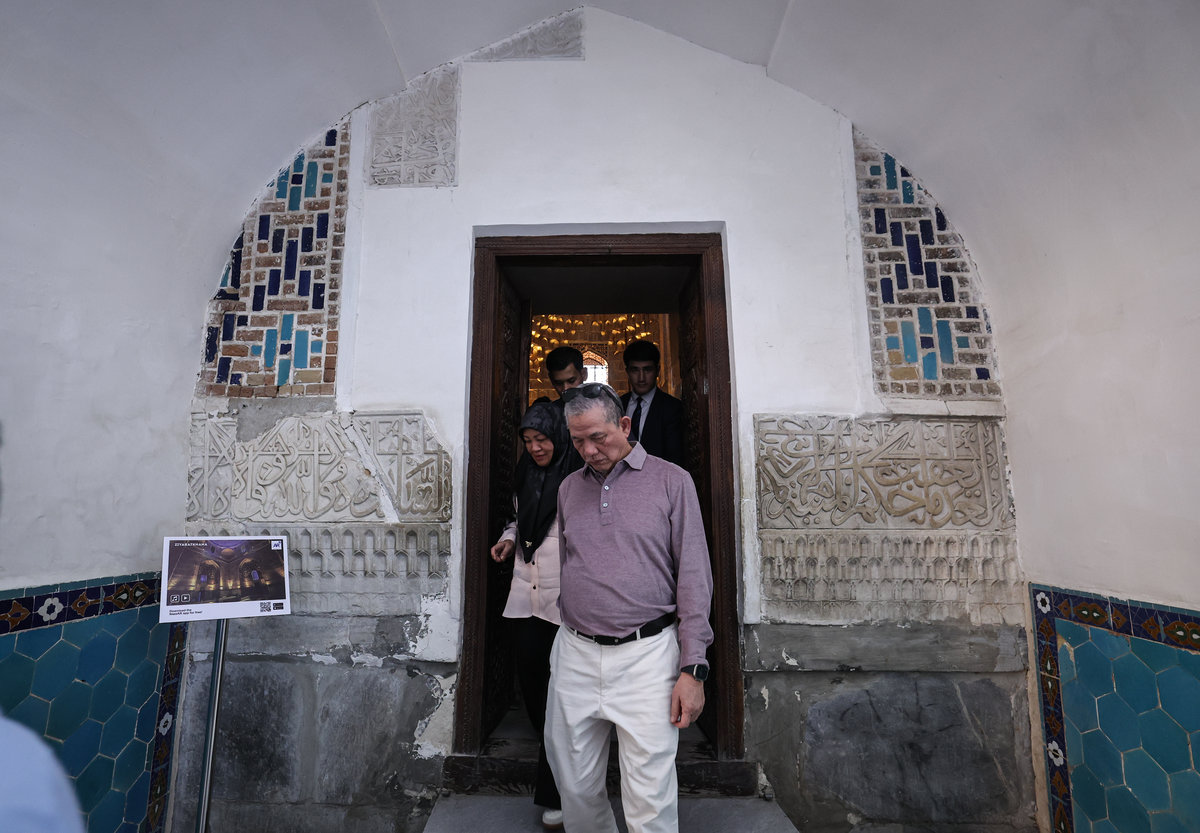SAMARKAND: Malaysia continues to strengthen its public sector to meet the evolving needs of its people while contributing meaningfully to the Sustainable Development Goals.
Deputy Prime Minister Datuk Seri Fadillah Yusof said under the Tenth Malaysia Plan (2011–2015), Malaysia achieved major strides in digitalising public service delivery.
He noted that over 10,000 government services, accounting for 77 per cent, were made available online, greatly enhancing access and convenience for citizens.
“We reduced licensing burdens at both federal and local levels by nearly 60 per cent and saved over RM9 billion through value management efforts and the abolition of more than 38,000 redundant positions, underscoring our commitment to prudent governance and efficient service delivery,” he said in his speech at the United Nations Public Service Forum 2025 here today.
Fadillah said that one of the key pillars of the civil service’s transformation was the adoption of H.E.M.A.T -an acronym made up of five core values, which Hijrah Tatakelola (Governance Transformation), Empati Rakyat (Empathy for the People), Minda Pekin (Progressive Mindset), Apresiasi Inovasi (Appreciation of Innovation), and Tadbir Urus Telus (Transparent Governance) – in its daily operations..
“Introduced by the Director-General of Public Service, H.E.M.A.T encapsulates the spirit of responsible leadership and a renewed commitment to quality service delivery,” he added.
Complementing this, the Chief Secretary to the Government, Tan Sri Shamsul Azri Abu Bakar, has launched a comprehensive Public Service Reform Agenda focused on value-based governance, human capital development, organisational strengthening, service delivery, and public-private sector collaboration.
“These reforms are supported by the Associated and Integrated Strategy, which ensures technology and data are embedded in governance transformation,” he said.
Fadillah said Malaysia’s commitment to a sustainable future is further demonstrated through the establishment of the Ministry of Energy Transition and Water Transformation (PETRA), which is currently under his purview.
“This reflects the Government’s strategic decision to align critical public utilities with climate action, technological innovation, and inclusive development.
“PETRA is tasked with transforming our energy and water governance models. It is leading efforts to future-proof the electricity grid, promote renewable energy adoption, particularly solar and hydropower, to enhance energy efficiency, and modernise water resource management.
“It also seeks to ensure that infrastructure planning integrates sustainability and equitable access at its core,” he said.
At the same time, Fadillah stressed that the welfare and professionalism of Malaysian civil servants remain a priority.
“Our newly introduced Public Service Remuneration System, effective December 2024, reflected this focus.
“It embeds performance-based rewards, phased salary adjustments, and clear career pathways aligned with the MADANI vision to foster a just, inclusive, and high-performing society,” he added.
The United Nations Public Service Forum 2025 runs until June 25.









